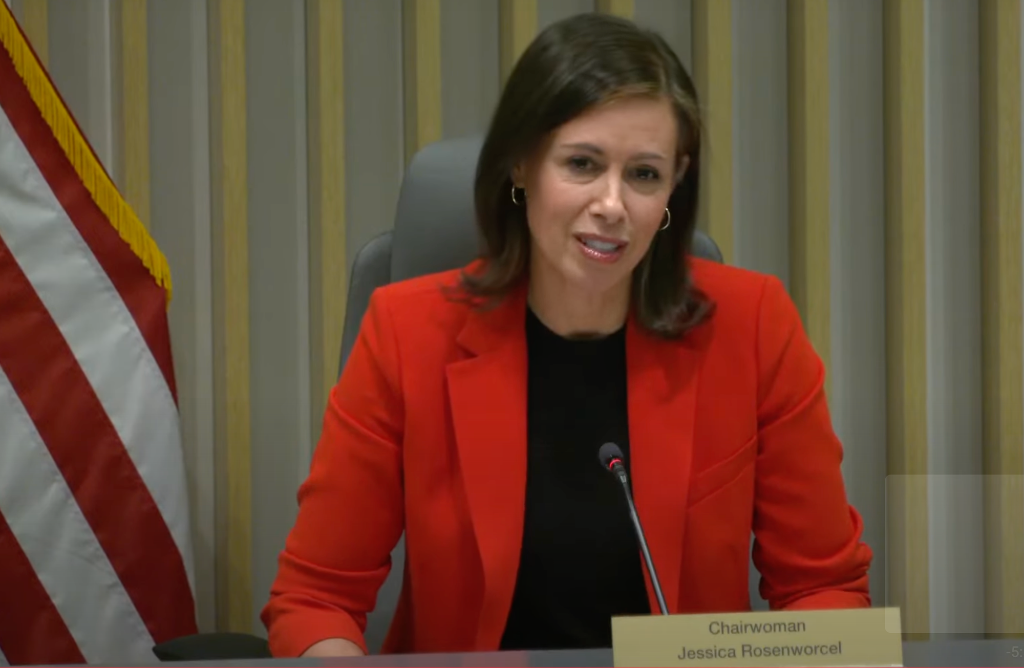FCC Unanimously Moves to Update Subsea Cable Rules
The agency is responsible for licensing underwater cable facilities connecting to the U.S.
Jake Neenan

WASHINGTON, Nov. 21, 2024 – The Federal Communications Commission voted Thursday to start the process of overhauling its submarine cable rules. It would be the first such update since 2001.
“They’re easy to miss, but more than 95 percent of internet traffic across the globe travels over these facilities, including financial transactions that add up to more than $1 trillion a day,” FCC Chairwoman Jessica Rosenworcel said at the agency’s meeting Thursday. “Despite the increase in their importance and advancements in technology, our practices overseeing these facilities have not changed much during the last two decades at the FCC.”
The agency is responsible for licensing subsea cable facilities that hook up to the United States. Rosenworcel said there are currently 84 cables licensed by the FCC.
The unanimously adopted notice of proposed rulemaking asks for input on sweeping changes to that licensing process. As outlined in the public draft circulated earlier this month, agency staff said it would propose requiring licensees to file updated information on ownership, the status of their cable system, network management, and other information every three years. The agency currently collects some of that every 25 years as licenses expire and are renewed.
The item also proposes requiring licensees not to use equipment or services on the FCC’s Covered List, a list of communications products from companies considered security threats by US Lawmakers. In an update from the draft, Commissioner Geoffrey Starks said the approved version asks for comment on preventing covered entities themselves from holding licenses.
That’s in addition to a host of other proposals aimed at modernizing the application and review process.
The subsea cable industry had told agency staff that the extra reporting requirements might stifle deployment. Officials from the FCC’s Office of International Affairs said “we did receive comments from [the industry], and we looked at those and incorporated them, which made sense.”
The issue of undersea cable security has been getting more attention in recent months. Rosenworcel noted that a group of senators on the Foreign Relations Committee asked President Joe Biden to review vulnerabilities in the undersea network last month.
Rosenworcel said the agency is working with international counterparts on the issue, citing a partnership with India, Australia, and Japan to “bolster the security and resilience of undersea communications,” ongoing since 2023, and a 30-country agreement from a September United Nations meeting that laid out “shared approaches for the security, interoperability, sustainability, and maintenance of submarine cable infrastructure.”
Other actions
The agency proposed a more than $700,000 fine against a Chinese smart home company for providing an apparently fake U.S. agent address. The FCC started investigating the company over privacy concerns, which is still ongoing. Rosenworcel said the agency is auditing hundreds of other device certifications that used the same information.
Commissioners also adopted more requirements for companies that use a third-party company to comply with the agency's caller authentication rules, part of an ongoing effort to curb robocalls. Rosenworcel again called on Congress to fix what she called a “gaping loophole” left after the Supreme Court narrowed the definition of "autodialer" – and thus the set of robocallers the FCC can target – in 2021.
Rosenworcel said she would try to push lawmakers to prioritize rip and replace funding in the lame-duck session. The program reimburses providers for swapping out Covered List network gear but is underfunded by about $3 billion.









Member discussion